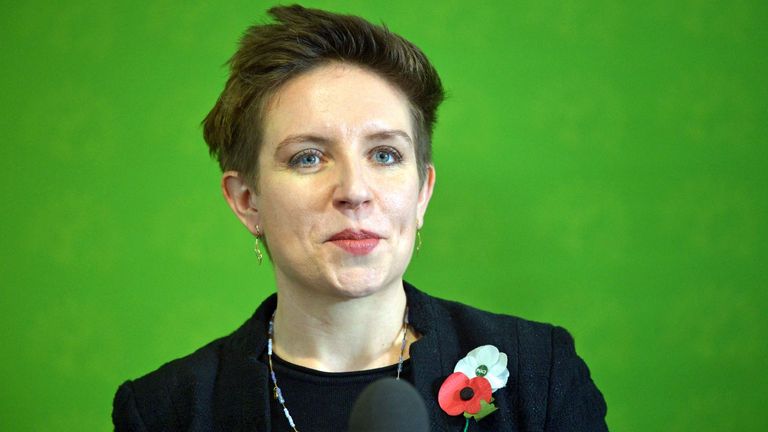Bristolians care about our planet.
The environment, sustainability and tackling climate change are matters close to their hearts. So when the city saw the Green Party make record gains in the recent local council elections – it was no surprise.
The party more than doubled their number of councillors in last week’s elections. Jumping from 11 to 24, even snatching seats off Labour in some of their traditional strongholds. Their new number means they are the main opposition in the city council, a first for the party in any region.
It appears many in the city were not only drawn in by their policies on fairness and the climate crisis, but perhaps a chance to protest and move away from the traditional parties.
“It certainly seems that the Labour leadership nationally probably weren’t doing Labour any favours here,” says Councillor Carla Denyer, who increased her majority in her ward by some 800 votes.
Ms Denyer told Sky News that her party struck a chord with those on the doorstep tired of infighting on a national level: “The fact that the Green Party really approaches politics differently is appealing, we have a more open and collaborative style and we’re happy to work with anyone, and listen to the residents that we serve.”
Of the Green voters we found in Bristol, the majority cited the climate emergency for why they opted to trust the Greens.
It is a city that takes care in its environmental mission – many people in fact choose to move there because of its greener culture. It was the UK’s first cycling city, and has previously been the European Green Capital – you’re also never far from a vegan cafe.
The high student population of the city may be behind some of this movement, with last year Greta Thunberg leading a march of some 15,000 people through the streets of the city demanding action.
One of those who helped organise the Greta climate rally – 18-year-old Lily Fitzgibbon – is now the youngest city councillor.
Another newly elected councillor, Tony Dyer, said it’s not just the young voters who’ve had an impact though.
:: Subscribe to ClimateCast on Spotify, Apple Podcasts, Spreaker
She added: “I think it’s too easy to say it’s young voters voting Green and older voters voting for the Conservatives, we had people across the age spectrum coming to us, who are concerned about the future, not just for themselves but for their children and their grandchildren. People are fed up with warm words and promises.”
Mr Dyer, who has been in politics for years, says there is some disillusionment with the major parties: “I think there was an element of people looking for something different – and also looking for something positive. And I think the Green Party is providing that positive element.”
It’s not just the leafy suburbs of Bristol which have seen successes for the party – the inner city wards too have flipped Green.
This is also felt in some parts of the country and in Scotland too. Gains in cities like Sheffield and Manchester show signs of greener thinking and for the Scottish Greens, a record eight MSPs.
For the party’s co-leader, Sian Berry, it’s shown their competitors they can no longer be dismissed and seen as a wasted vote.
She told Sky News: “We’re now the third party across many parts of the UK, and I think people are looking to vote for something that is wholly positive and full of good ideas, not just as a protest but as an endorsement.”
The Greens across England and Wales remain small in number, but it’s hard to brush off the smiles on the newly elected councillors’ faces.
Their numbers are slowly growing and in turn, the party is growing in confidence. They are determined not to be underestimated.
Sky News has launched the first daily prime time news show dedicated to climate change.
The Daily Climate Show is broadcast at 6.30pm and 9.30pm Monday to Friday on Sky News, the Sky News website and app, on YouTube and Twitter.
Hosted by Anna Jones, it follows Sky News correspondents as they investigate how global warming is changing our landscape and how we all live our lives.
The show also highlights solutions to the crisis and shows how small changes can make a big difference.



